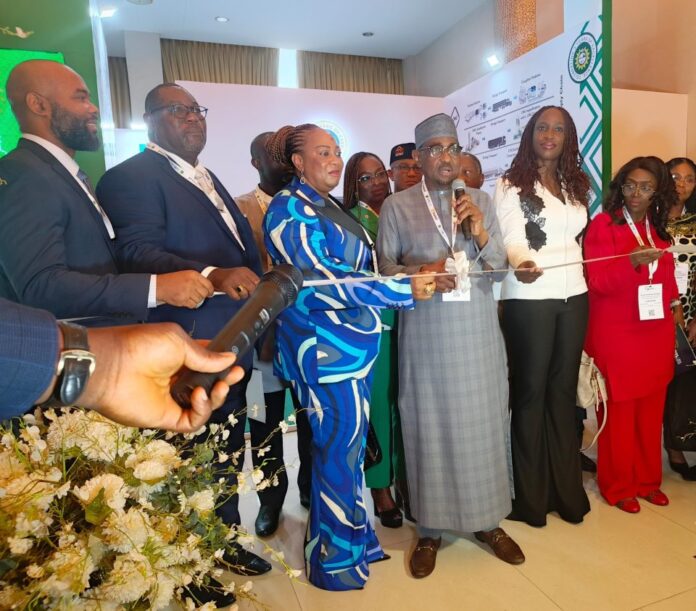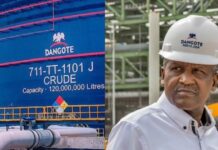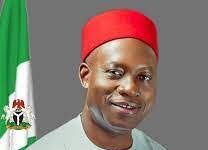. As Sanwo-Olu seeks private sector alliances to harness renewable energy in Lagos
. NMDPRA pledges to drive CNG sector growth, safety
UGO AMADI
In a bid to boost Nigeria’s Decade of Gas Initiative , the Federal Government says it has committed more than 75 million dollars to the development of Compressed Natural Gas (CNG) infrastructure, an inventiveness in promoting cleaner energy nationwide.
The Special Adviser to President Bola Tinubu on Energy, Mrs Olu Verheijen stated this at the ongoing 18th OTL Africa Downstream Energy Week on Monday in Lagos, with the Theme “Alliances for Growth”.
Verheijen, who was represented by her Technical Adviser on Energy, Mrs Eriye Onagoruwa, emphasised that the investment aligns with the government’s agenda to promote sustainable energy practices and reduce carbon emissions.
Underscoring the potential for growth in the sector, she said, “Despite having an oil and gas industry that has been operational for over 80 years, Nigeria has only tapped into 4 per cent of its resources since 2016.
“The government aims to foster transparency and efficiency by introducing incentives that encourage investment in CNG, liquefied natural gas (LNG), and electric vehicle technologies.
“These measures will not only enhance sector growth but also make energy solutions more accessible and environmentally friendly.”
She said that the initiative provides affordable and cleaner cooking options, contributing to healthier households and a greener environment.
According to her, the government believes that expanding CNG infrastructure will significantly reduce reliance on traditional fuels and support Nigeria’s commitment to global sustainability goals.
. As Sanwo-Olu seeks private sector alliances to harness renewable energy in Lagos
However, Governor Babajide Sanwo-Olu has called for stronger alliances with the private sector, young entrepreneurs, and both local and international stakeholders to unlock the potential of sustainable energy solutions across Lagos and beyond.
Sanwo-Olu made this appeal during the opening session of the 18th OTL Africa Downstream Energy Week in Lagos
The Governor, who was represented by Mr. Biodun Ogunleye, Lagos State Commissioner for Energy and Mineral Resources, emphasized the importance of partnerships in driving innovation and building resilient energy infrastructure.
“Together, our collective efforts will foster the kind of innovation needed to transform energy systems in Lagos, Nigeria, and across Africa,” Sanwo-Olu stated.
He urged stakeholders to prioritize collaboration over competition, sustainability over short-term gains, and resilience over complacency.
The Governor highlighted Lagos State’s proactive role in advancing energy accessibility and sustainability.
“Our administration has tirelessly supported energy initiatives that promote accessible, affordable, and sustainable power,” he said.
Sanwo-Olu cited the state’s public-private partnerships and international collaborations as models of resilience and innovation.
“From solar energy for street lighting to mini-grid development and the adoption of cleaner fuels for transportation, Lagos is building a future that is both greener and cleaner for all,” he noted.
Sanwo-Olu stressed that Africa’s vast energy potential, including natural gas reserves and emerging renewable energy sources, presents unique investment opportunities.
However, he warned that unlocking this potential requires the right environment—one that fosters growth, innovation, and inclusive participation.
“Governments must play a critical role by creating frameworks that encourage investment, streamline regulations, and develop infrastructure to drive broader economic development,” he added.
The Governor reiterated Lagos State’s commitment to attracting investment and forming strategic alliances to benefit both communities and the economy.
He said, “We aim to build an energy landscape that encompasses every element—from exploration and production to storage, distribution, and retail.”
Sanwo-Olu emphasized that the energy transition is not merely about replacing fossil fuels but about creating an integrated ecosystem that includes diverse energy sources.
“While we transition to low-carbon solutions, traditional fuels like natural gas, CNG, and LPG will remain vital to ensuring energy security,” he explained.
He further noted that the state is committed to investments in renewable energy projects, such as solar power, waste-to-energy plants, and mini-grids, seeing these as essential components of a sustainable energy ecosystem with long-term benefits.
The Governor concluded by urging industry players to explore Nigeria’s abundant resources and to build alliances that extend beyond borders.
“Our shared commitment to sustainable growth will create a legacy of resilience, innovation, and prosperity for Africa’s energy future,” Sanwo-Olu stated.
He acknowledged the challenges facing the energy sector but expressed confidence in Africa’s potential.
“The choices we make today will determine the future we create. The challenges are real, but they are not insurmountable. Africa’s energy future is bright,” he affirmed.
. NMDPRA pledges to drive CNG sector growth, safety
The Nigerian Midstream and Downstream Petroleum Regulatory Authority (NMDPRA) has reaffirmed its commitment in ensuring a safe and compliant Compressed Natural Gas (CNG) sector.
Mr Ahmed Farouk, the Authority Chief Executive of NMDPRA disclosed this on Monday
during his keynote address at the ongoing Oil Trading & Logistics (OTL) 18th Africa Downstream Energy Week in Lagos.
Farouk said that the NMDPRA’s collaboration with industry stakeholders was to establish a robust regulatory framework for CNG.
“The CNG is still in its infancy in Nigeria. NMDPRA aims to streamline regulations and improve safety measures to promote market maturity and industrial growth.
“Our commitment to supporting the government’s objectives under the Petroleum Industry Act (PIA) remains unwavering.
“We are focused on delivering on our mandates while fostering collaborations to achieve shared aspirations within the industry,” he said.
Farouk said that the authority plans to revise and consolidate existing regulations through strategic engagements with stakeholders.
According to him, the initiative seeks to simplify compliance processes and ensure that safety standards are upheld throughout the CNG sector.
“In line with its efforts, the NMDPRA aims to promote CNG as a viable alternative fuel for vehicles, aligning with ongoing initiatives such as the Decade of Gas Program and the Pi-CNG programme,” Farouk added.
The NMDPRA boss noted that expanding CNG infrastructure remained crucial for enhancing energy security and supporting Nigeria’s transition to cleaner energy solutions.
He reaffirmed NMDPRA’s dedication to establishing strong partnerships within the industry and with regulatory bodies across West Africa.
Farouk highlighted the agency’s goal of creating a uniform gas transportation code to facilitate the movement of natural gas and enhance regional collaboration.
“The OTL conference serves as a vital platform for discussing strategies that lead to sustainable energy practices.
“The insights and outcomes from this summit will contribute significantly to the overall development of the industry,” he noted.
Also addressing the conference, Mr Huub Stokman, Chairman of the Major Energy Markets Association of Nigeria (MEMAN), underscored the importance of cost efficiency in a fully deregulated downstream oil market.
He stressed the need for partnerships with organisations like the Nigerian Association of Road Transport Owners (NARTO) to address logistical challenges, such as road accidents involving tankers.
Stokman emphasised that alliances within the industry should focus on economic strategies for investment, knowledge development for human capital, and strategic partnerships.
“As Nigeria continues to prioritise energy security and sustainability, the NMDPRA’s initiatives signify a substantial step toward achieving a mature and compliant CNG market, positioning the country to meet both national and global energy goals

























